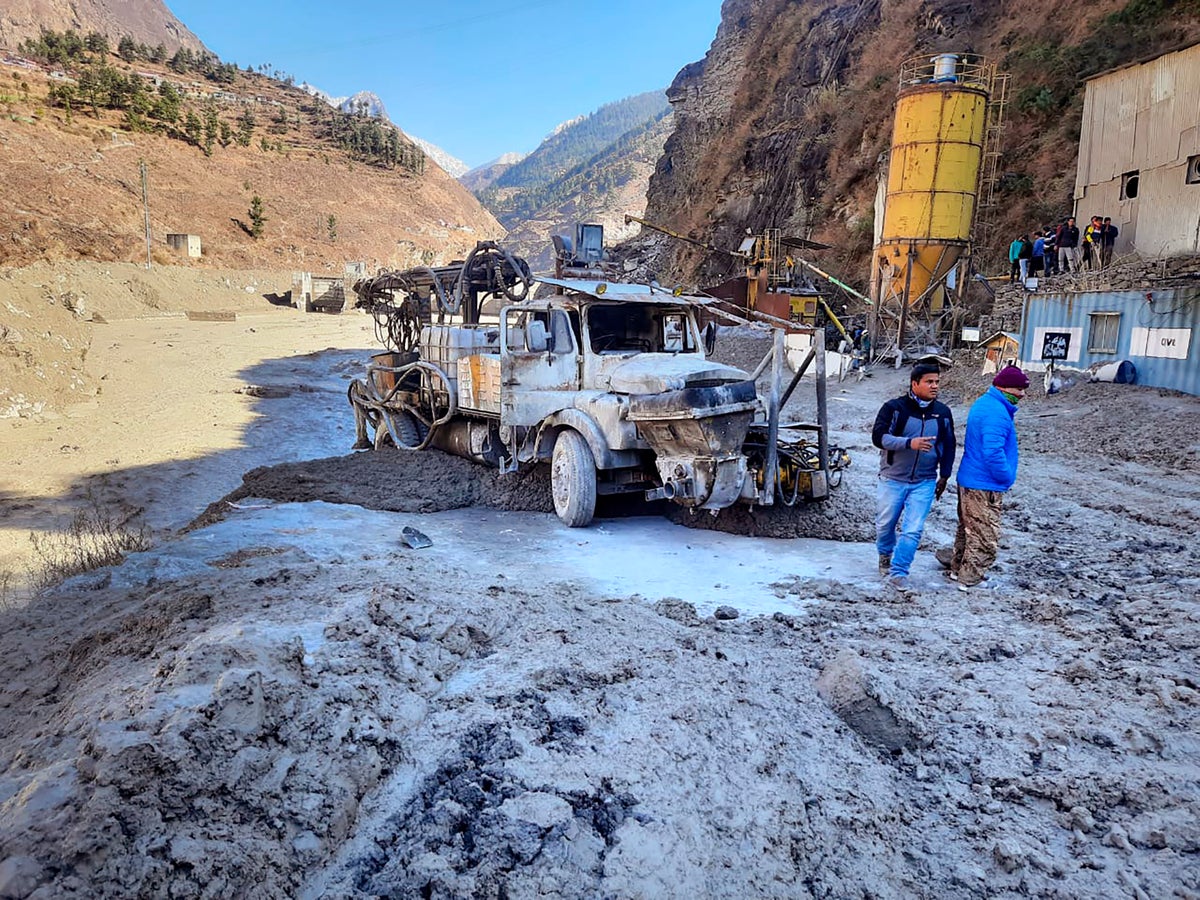
An Indian excavator operator who digs up the earth and levels hillsides for a living, narrowly dodged death on Sunday by clinging onto a tree following massive flash floods in northern Uttarakhand state, and says he now has newfound respect for nature.
Vikram Chauhan, 49, was at work as usual on Sunday at the Rishiganga hydel power project, filling his excavator with sand from the riverbed, when a wall of ice-cold water came gushing down and swept him and others working at the site, away.
Mr Chauhan, who suffered injuries to his ears and head, told the Times of India newspaper he hit a tree after being swept away and held on to it tightly for about 30 mins before being rescued by people from the nearby Raini village.
“I was shivering with cold, they put me in a hot spring nearby to revive me,” said Mr Chauhan, who lost two of his friends in the flood.
“I am grateful that nature came to my rescue in the form of a tree,” he told TOI.
The Uttarakhand disaster, which is believed to have originated from a landslide, contradicting the earlier report of a glacier burst, killed 39 people with attempts to find and rescue 169 missing people still going on.
Several people who were working in the hydro plant were rescued from tunnels after hours of efforts by security personnel.
Mr Chauhan, whose job as excavation operator is to cut mountains and plough the earth, says the incident has changed his outlook towards nature.
“I respected trees because it gave us oxygen, nothing more than that,” he said, “but that morning taught me a lesson that nature has both the powers to save or to kill.”
The doctor who was treating Mr Chauhan at a local hospital also echoed the same sentiment.
“Nature saved him, first the tree and then the hot water spring treatment for his body that actually revived him,” Dr Sanjay Chaudhary told TOI, stating that his condition is now improving.
Most victims of the flash flood are believed to be workers of similar construction sites, that activists say are the reason behind frequent natural disasters.
The sensitive area has had several new projects approved by the government, with activists and locals alleging that the unmonitored construction and excavation is changing the natural ecosystem of the zone.
Related posts:
Views: 0
 RSS Feed
RSS Feed















 February 12th, 2021
February 12th, 2021  Awake Goy
Awake Goy  Posted in
Posted in  Tags:
Tags: 
















